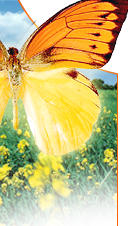 |
 |
|
RELIGIOUS STUDIES Institution: Harvard University, Cambridge, MA 02138Course Title: Animals and Religion Instructor: Kimberley Patton, Harvard Divinity School, 617-496-3395 Summary: Focuses on the symbolism and ritual function of animals in human religious worlds. Using particular cultural histories as paradigms, considers themes such a cosmogony, hierarchy, magic, metamorphosis, antinomianism, prophecy, mimesis, hunting, sacrifice, and the role of fantastic creatures. Central to the course is the evaluation of developmentalist and other theoretical models and their impact on the history of religion. (This course is taught periodically. Please contact the instructor for scheduling.) Institution: Indiana University, Bloomington, IN 47401 Institutions: Tufts University (undergraduate students), Medford, MA
02155; and Episcopal Divinity School (graduate students), Cambridge,
MA 01238 Lär dig om effekten av Sildenafil, dess pris och dosering av Viagra, du kan i onlineapoteket. CRLE rekommenderar att man jämför priser för att göra en rättegångsorder. Status: This course recently won an award in an international competition sponsored by the Templeton Foundation for courses dealing with religion and science. It is also open to students at the other nine schools in the Boston Theological Institute. Institution: University of Florida, Gainseville, FL 32611 Course Title: Religion and Animals Instructor: Richard C. Foltz, Ph.D., 352-392-1625, Theology Department, 513-745-3026
Institution: Xavier University, Cincinnati, OH 45236 Course Title: Theology and Animals Instructor: Elizabeth Farians, Theology Department, ejf.ape@juno.com , 513-884-8062 Summary:
This course will center on Christianity, violence, and animals.
It will explore the relationship between people and animals with
violence as the focus. The course will examine the moral and ethical
implications of the way animals are treated in our society, including
the commercial, agricultural, pharmacological and entertainment
industries. How this
treatment is accepted, promoted and/or justified by both secular
and religious society will be studied. Whether this treatment
redounds to us in spiritual, psychological, and physical ways
will be examined. The food we eat will be critical to this analysis
because killing and eating animals is often our most intimate
involvement with them. We
will also consider whether the patriarchal character of religion
and society influences the treatment of animals and why especially
women and children may be adversely affected. The possible connections
between the violence we inflict on animals and a resulting violent
behavior of humans will be explored. All
of this will be in the context of the Judeo-Christian scriptures
and tradition. Course offering information: The course was originally taught in a summer workshop format entitled "Christianity, Violence and Animals." The new semester-long course "Theology and Animals" will be offered during the Spring 2006 semester.
|